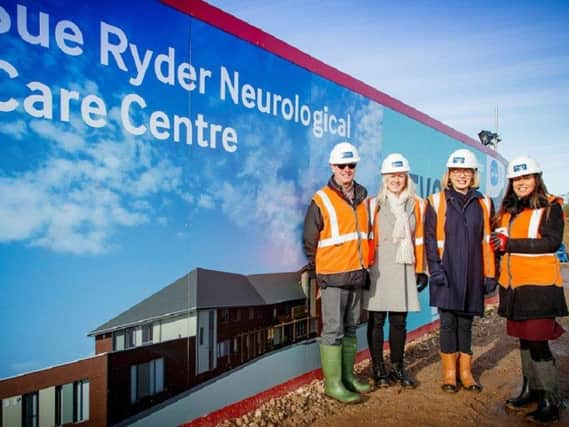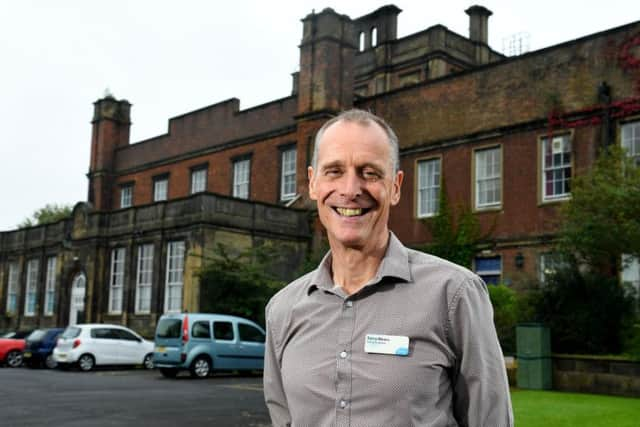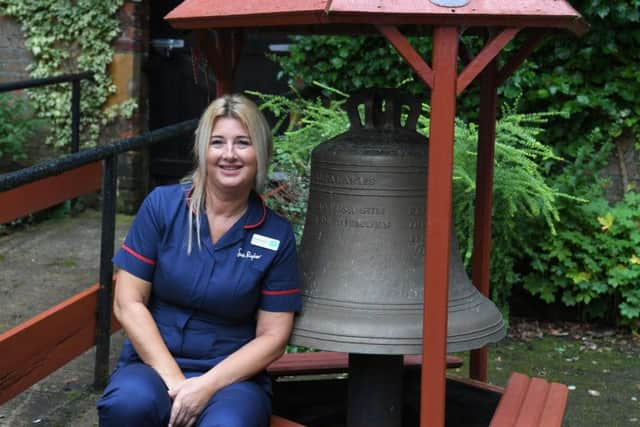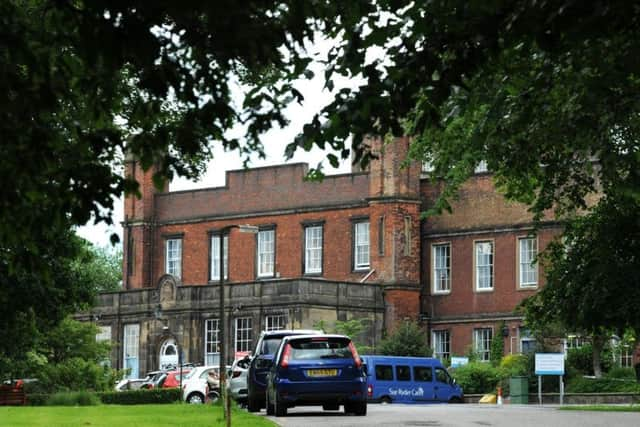New Sue Ryder Specialist Neurological Care Centre in Fulwood will "change things for a generation"


Imagine losing your friends.
Next imagine not being able to enjoy the hobbies and interests you once had.
Now imagine losing contact with your family - your husband or your wife, maybe your parents, perhaps, or your children.


Then imagine losing your home.
Advertisement
Hide AdAdvertisement
Hide AdIt is not a prospect anyone would want to be faced with. But for some people who are living with long-term degenerative neurological conditions, it can be a reality.
It is exactly what visionaries behind a state-of-the-art, purpose-built specialist centre coming to Fulwood in March are determined to prevent from happening.
And we are asking our readers to help raise cash to kit out the centre with things which will help patients going through rehab there live fuller lives.


Terry Mears, centre director at the Sue Ryder Neurological Care Centre, which is currently based at Cuerden Hall, says once people are diagnosed with neurological conditions such as Huntington’s, Multiple Sclerosis, or Motor Neurone disease for example, they experience huge loss which paints a desperate picture for their future.
Advertisement
Hide AdAdvertisement
Hide Ad“The whole aim is about helping people maintain their independence,” said Terry. “We’re hoping to change things for a generation.
“It’s about creating the head of steam in society to really transform what’s on offer for people right across the UK for people with life-limited neurological conditions.”
A couple of the central themes of achieving that aim are to move away from the idea of an institutionalised care home, cut off from society, and to prioritise technology which helps people to communicate.


Head of business and governance at the Sue Ryder care centre, Nicola Murray, says: “In essence, it’s about what people need to remain as independent as possible.
Advertisement
Hide AdAdvertisement
Hide Ad“It’s important that people get to stay at home as long as possible and I think having this brand new facility will enable us to support people in a very different way.
“It’s not always about living in the building. Obviously, we will look after people who are at a much more complex stage of their condition but for me the bit that excites me the most is being able to touch as many people as possible with advice and information so that they can figure out what a diagnosis means for them.
“We want people to be able to live at home for as long as physically possible and to remain as independent as possible. We’ve got the four bungalows which will lend themselves to the rehab pathway.
“So it’s about having that community capacity and for people to be living the life they want to live as much and as full as possible is the thing that I’m most excited about.”
Advertisement
Hide AdAdvertisement
Hide AdNicola says that another aspect of the specialist centre which she is excited about is “being in the heart of a community”.
“It can be a little bit isolating out here at Cuerden Hall,” she says. “It’s not easy to jump on public transport to pop into the local town you have to really plan to get the transport organised.
“We’re also looking to develop a community cafe for people for early point of diagnosis.
“People don’t know what they need until they need it. If someone’s just got a diagnosis and you don’t know what that means because you’ve never known someone who’s had that before the first thing you think is the worst case scenario. Your brain automatically rushes there because you’re thinking, ‘What are we going to do. ‘
Advertisement
Hide AdAdvertisement
Hide Ad“If we can guide someone with that information and support. We’ve got a face to face counselling service, we’re looking to expand. We’ve got the volunteering opportunities so even if someone with a condition wanted to volunteer with us so that we could be around that environment so that they could learn more they’re the things that we want to do that are a little bit more than what we do more.
“It will just ease that person’s journey and any anxiety hopefully keep them in work as long as possible, keep them in work as long as possible with their families and the people who they want to be with.”
Nikki Lorimer, head of clinical services, says the move represents a transformation from an institutionalised care home to a specialist centre focusing on rehab and enabling people to live in the community.
She says: “At Cuerden Hall it’s a long stay, almost institutionalised care home for deteriorating neurological conditions and conservative treatment of the same.
Advertisement
Hide AdAdvertisement
Hide Ad“It’s time to change the vision and twist it around a little bit because the rehab programme will be completely different.
“If somebody has a brain injury it might take a while for the normal function to come back. It’s the real support to help them to get to a level of normality for them to be independent. Say they might have a 12 week programme - they would have a daily timetable of activities and that could be physical mental, writing, and speaking, it could be swallowing, it could be walking. It depends on where the issue is. It will be a real intensive period which is lovely because you get to see improvement.
“It’s about getting them back to a state of normal living which is acceptable for them - a state of normal living within the community.
“Some people might be supported in different ways but they can largely be independent.
Advertisement
Hide AdAdvertisement
Hide Ad“Whereas with palliative treatment you’re supporting people to do everything they can do until the end so you might say, ‘Don’t struggle, I’ll try and help you with that’ but this is going to be a different way of thinking.
“You’ll be saying you’re going to have to try and do it yourself. The nurses will have to step back a bit more, I’d imagine.
“We’re not expecting everyone goes back to 100 per cent mobility and function but we want to get near on 100 per cent.
“It’s exciting because its something innovative, it’s something new.
“We are revolutionising a part of the Sue Ryder care.”
Help for people stay independent
Advertisement
Hide AdAdvertisement
Hide AdNicola Murray, head of business and governance at the Sue Ryder care centre, says in terms of technology they are prioritising anything which will help people to communicate.
As well as bringing people out of their isolation, being able to communicate means they will get better care.
“Sadly it’s either the first thing to go with a deteriorating condition or it’s the first thing that is limited if someone has acquired an injury,” she says. “It’s about anything that we can do for a person to enhance their communication.
“It’s all about communicating because if you can communicate effectively with an individual then their care and support needs are crystal clear and person centred.
Advertisement
Hide AdAdvertisement
Hide Ad“So if there’s any sort of assertive technology that we’ve explore its got to be about primarily communication first and foremost.
“Then you’ve got technology that will support someone’s rehabilitation for example the anti-gravity treadmill, things like standing aids and you’ve got the virtual reality experience. They are about having person-centred bespoke scenes to remind someone of who they were and who they can still be.
“It’s the bespoke things that you can’t get off the peg.
“It’s about the whistles and bells stuff so that we can really get people living as independent as possible.”
HOW TO DONATE
Readers are welcome to donate any amount to the appeal. Anyone who donates £10 or above will have their names included in our Sponsor a Star article in the paper, just before Christmas.
To donate, go to www.sueryder.org/makeadonationOr send a cheque to:
Lancashire Post Appeal,
Supporter Care,
Sue Ryder,
183 Eversholt Street,
London NW1 1BU